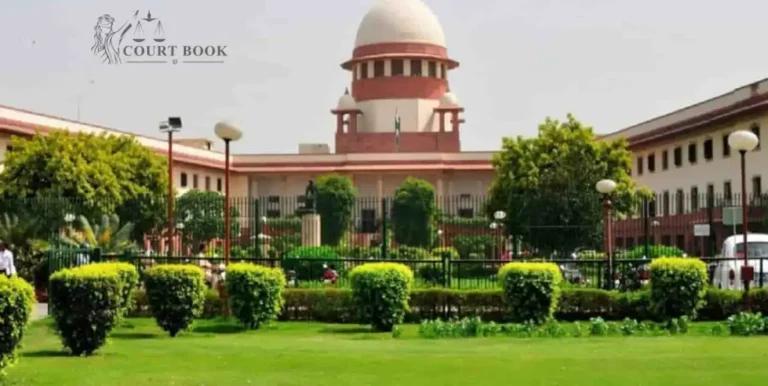The Supreme Court has concluded its examination of the alleged misutilization of Compensatory Afforestation Fund Management and Planning Authority (CAMPA) funds by the Uttarakhand government, determining that any deviations in fund usage were minor. The court directed the state to ensure strict compliance going forward, bringing the matter to a close.
The Uttarakhand government clarified that most expenditures were within the framework of permissible activities under the CAMPA rules. The state had already initiated departmental proceedings in cases where irregularities were identified before the court’s intervention. Justices B.R. Gavai and A.G. Masih presided over the case, with Solicitor General (SG) Tushar Mehta representing Uttarakhand. After a review of the explanations, the court found no need for further action.
"Perusal of the affidavit (of Uttarakhand Chief Secretary) would reveal that the amounts spent were on activities which are directly or indirectly connected to forestation and/or preservation of the forests. The amount spent is about 1.8% of the total funds available for utilization in the CAMPA fund."
Read Also:- Supreme Court Clarifies Rules for Recording Advocates' Appearances in Court Proceedings
The Supreme Court acknowledged that only 1.8% of the total CAMPA funds (approximately ₹753 crores) were in question. It noted that delays in depositing interest resulted from the Central government’s failure to notify interest rates on time. Once notified, the state deposited the amount promptly.
"We find that deviations, if any, are trivial in nature. However, the state would ensure that hereinafter, no deviations are made. The state would also ensure timely deposit of the interest at an approximate rate which can be subsequently adjusted as and when the Central government notifies the rate of interest."
The issue was brought before the court following a Comptroller and Auditor General (CAG) report presented by Amicus Curiae K. Parmeswar. The report alleged that Uttarakhand’s forest authorities used CAMPA funds for unauthorized purchases, including iPhones, laptops, refrigerators, coolers, building renovations, and legal expenses. The Supreme Court sought clarification from the Chief Secretary of Uttarakhand regarding these expenditures.
During the hearing, SG Mehta justified various expenses as being within the scope of CAMPA regulations. He explained that expenditures on the Harela Festival, which involved the plantation of seven lakh trees, were directly related to afforestation efforts. When questioned about minor expenses such as stationery, Justice Gavai remarked:
"Your state is that poor that it cannot provide amount for this stationery?"
Read Also:- West Bengal's OBC Reservation Row: Supreme Court to Review Fresh Classification Process
SG Mehta responded that such expenses were necessary for forest-related work. He also clarified that ration purchases for the Rajaji Tiger Reserve were meant for forest fire management, and expenditures on furniture and equipment were essential for patrolling vehicles, fire crews, and anti-poaching teams.
Regarding renovation expenses, SG Mehta noted that certain forest offices were in poor condition and required repairs. However, he admitted that some officials had used funds for personal furniture, for which departmental action was initiated.
While most expenses were deemed justifiable, SG Mehta acknowledged that certain purchases—such as a desktop, two laptops, and an iPhone worth ₹53,000—were not appropriately made from CAMPA funds. The government had already begun proceedings against those responsible.
The court also examined expenses related to a Tiger Safari project. While the activity itself was not illegal, SG Mehta conceded that it should not have been financed using CAMPA funds.
Another key concern was the delay in depositing interest from CAMPA funds. The state clarified that from 2019 to 2022, the Central government had not specified the applicable interest rate, causing an unavoidable delay. Once the rate was determined, the state deposited the required amount.
"There may have been an 'error of judgment' on the part of the authorities; however, the purposes for which the subject funds were utilized were not completely alien to forestation."
Read Also:- Supreme Court Orders CBI Proposal on Builder-Bank Nexus in NCR, Cites 'Quid Pro Quo' in Fund Disbursements
Justice Masih noted that the state must not rely entirely on CAMPA funds and should contribute independently to forest conservation. The bench suggested that states deposit interest at an anticipated rate to prevent delays in the future.
Ultimately, the Supreme Court found that any deviations in CAMPA fund utilization were minor and did not warrant further proceedings. The state was instructed to ensure stricter compliance moving forward.
Before closing the case, Justice Gavai raised concerns about the Centrally Empowered Committee’s staffing shortages. He noted that only four members were available, two of whom were still living in hostels. SG Mehta assured the court that he would address the issue.
Case Title: IN RE: T.N. Godavarman Thirumulpad vs. Union of India and Others, W.P.(C) No. 202/1995














